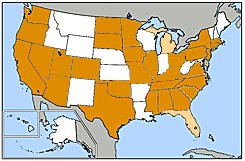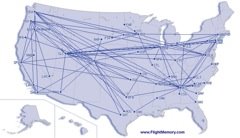Detroit, MI

Each year, the NCAA Rules Committee produces a nearly 200 page document of the rules for college basketball. It is a somewhat cumbersome attempt to account for the complexity of the game we have come to love. But the committee is planning to make some major changes for the 2009-2010 season.
Just this week, Rules Committee Secretary Ed Bilik released a statement that due to the monetary cost and amount of time of playing full season schedule, complaints about the subjectivity of officiating, and an ever-present cry to get back to the fundamentals of the game, NCAA basketball will look radically different next year. In order to determine the top teams, and indeed the NCAA champion, the process needs to be much more objective.
Here’s how it will work. Each week, athletes from each team will be measured and ranked according four criteria that have been determined to be fundamental to the success of the overwhelming majority of the best basketball players:
- Outside shooting
- Speed (while dribbling a basketball)
- Knowledge of the rules of the game
- Height
Teams with the highest score ranking will be the winner of that week’s contest. The season will progress in this manner, all the way through the championship, when this much more scientific process will determine the best team. No travel will be necessary, subjective officiating will not be a problem, and it will lead to athletes who are solid in the fundamentals of the game, which will allow them to be more successful in their futures on the court.

Critics like Arizona interim coach, Russ Pennell, immediately asked “what will become of our athletes and coaches? Most will quit playing the game, because ‘the game’ will have no meaning or relevance to them any more!” He also contends that although a few great coaches will still teach basketball by actually having athletes play the game, others, less courageous, will resort to “running lines, shooting free-throws, drilling the rules, and – in an effort to increase height – what? The rack?”
The NCAA Rules Committee was quick to respond, stating that other fundamental skills are important, too, such as passing, rebounding, defense, and teamwork. “Coaches should focus on all of these!” Bilik stated emphatically. “But we can’t test all of them, and these are much harder to measure. So from now on, games will be won or lost based on The Four Criteria.”
Okay, so I made this up. This scenario is fictitious. And probably for good reason: people would be rioting in the streets. (I hope I didn’t already cause that. Luckily, based on the size of my readership, they would small riots.)
But this is exactly the scenario we’ve created in public education.
We put an inordinate amount of value on measures of knowledge and skills in isolation from the real game of life. Students and educators are having a difficult time staying inspired because we are being asked to substitute what amounts to glorified practice for the real game. The passion is gone from most teams, and although there are still a few ‘coaches’ who know that inspiring their mental athletes with a love of the game, and practicing not just repetitive drills but scenarios and scrimmage, most are feeling tremendous pressure to focus on a narrow set of fundamentals.

These fundamentals are important, of course, but they are not everything. They are not why we play the game, they are not the only reason teams win games. We need to balance it out, not just in our practices, but also in the games we use to measure how good we are.
If we keep telling our kids “hey, just keep practicing these fundamentals, and maybe you’ll use them in about thirteen years when you get out of this school league,” we’ll lose them. Our ‘athletes’ will either quit (like they’re doing at the rate of about one million per year), or stick with it thinking that they are becoming real ‘basketball players’, when in fact they are wholly unprepared for real life after this league. The NBA wouldn’t give one of these kids a second look.
In the world of education, we need to look at how we are setting up the game. We need to measure what matters in the 21st century. We need to ask ourselves and our stakeholders, “what does the game look like now?” The answers I repeatedly hear from the real world are
1. Fundamentals, but also…
2. Teamwork/Collaboration
3. Creativity
4. Technological literacy
5. Civic engagement
6. Global awareness
7. Critical, integrated, and holistic thinking
8. Passion
Are these a bit more subjective than ‘the fundamentals’? To some extent. But the great students, teachers and schools will still rise to the top.
A bit more costly? Perhaps. But only in the short term.
A bit more inspiring? Absolutely. And that’s what keeps the players in the game.
Antoine de Saint Exupery said it nicely: "If you want to build a ship, don't drum up people to gather wood, divide the work, and give orders. Instead, teach them to yearn for the vast and endless sea."
Be the coach that inspires that yearning. The fundamentals will come. Your athletes will put in hour after hour, training and practicing on their own. And when it’s time to play the game, they’ll rise to the occasion.






















